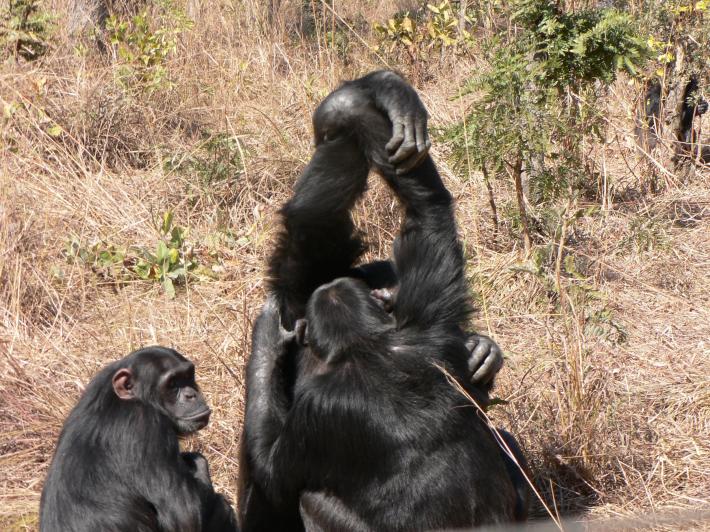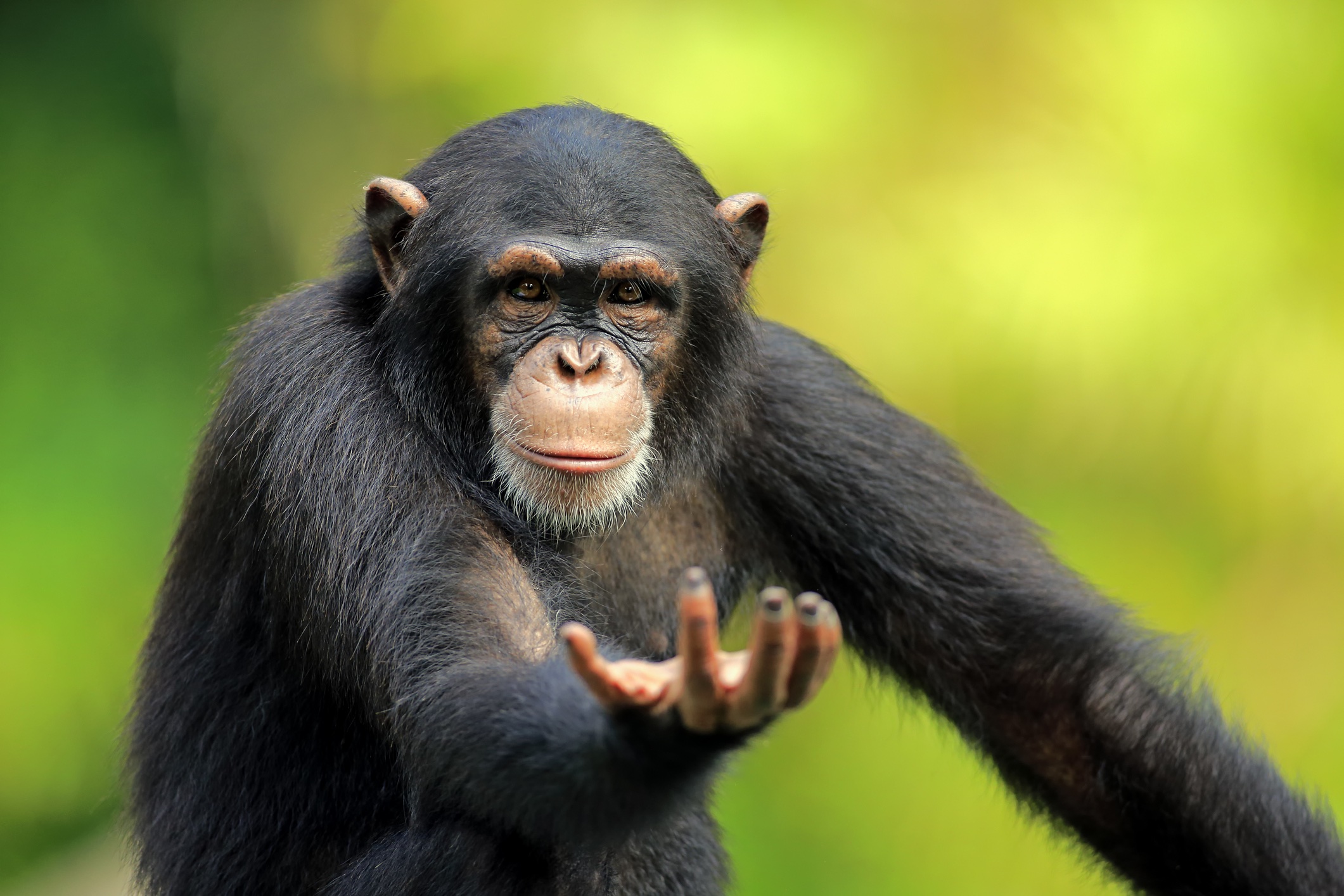None of us remember exactly when we learned how to hold an arm up high and say "up top!" and slap our open palm against the palm of a compatriot. We were not born with this knowledge. Rather, we learned it. Perhaps we watched one of the cool kids on the playground initiate "up top" with their flannel-clad posse; perhaps we witnessed "up top" on a middling TV show. But however we learned it, many of us heed the call of "up top" when summoned, and we will pass it on to others. Up top!
A chimpanzee does not know "up top" or even high-fives more broadly. Instead, the primates have their own iconic cultural response to a raised arm, that, like the high five, is a social custom passed from chimp to chimp. The chimpanzee grooming handclasp happens when two chimpanzees are sitting facing one another and holding their hands or wrists above their heads, as if creating a triangular silhouette. Then they can go to town with their free arm, sifting through hair for bugs, dirt, and dried skin.
This handclasp was first observed in chimpanzees decades ago—the first social custom in chimps described by science. As scientists observed the handclasp in more and more populations, they noticed communities had different styles of approaching the handclasp. For example, some clasped palm-to-palm, and others clasped palm-to-wrist. Now, a new study in Science Advances explores how these preferences are socially transmitted among groups of chimpanzees.

The researchers wanted to know if two transmission biases very common in human culture—majority bias and dominance bias—played a role in chimpanzee culture. Majority bias influences people to copy the behaviors of the majority (such as stanning Taylor Swift) and dominance bias influences people to copy the behaviors of more prestigious people (such as when my talented and influential coworkers whose work I deeply respect stan Taylor Swift).
After analyzing 12 years of handclasping observations in two groups of 71 semi-wild chimpanzees in Chimfunshi Wildlife Orphanage Trust in Zambia, the researchers found examples of both forms of bias. Most young chimps engage in their first handclasp with their mothers, and the specific styles of handclasping is initially passed down through matrilineal lines. The authors found younger chimpanzees were far more experimental in their approaches to handclasping, suggesting chimps eventually conform to the style favored by the majority. And they found younger and lower-ranked chimps were more likely to mimic the styles of higher-ranked individuals in the group.
All this makes sense. For chimpanzees and humans, social acceptance is often accompanied by tangible benefits, such as bonding with specific individuals. The social world is thorny and complex, and it can be more secure to act like the individuals with the most power. Fortunately, at least in the case of chimps, the researchers found no evidence of animals discouraging or punishing individuals who did not conform to the majority, one of the authors told Popular Science. Regardless of style, the handclasp itself confers no evolutionary benefit. It's just something to do, like wearing the puffy red boots.
Grooming aside, the whole paper is full of gems about chimpanzee culture—chimp conformists, chimp iconoclasts. For example, when two new female chimpanzees were introduced to a chimp community at the Royal Burgers' Zoo in the Netherlands, one of the newbies, Moni, adopted a local tradition in the existing community—walking with crossed arms—after meeting just one female who'd been in the group for decades. The other new female chimp, Erika, never copied with the crossed-arm walk and, consequently, never became as socially integrated than fellow newbie Moni. But I looked at photos of the cross-armed walk and, frankly, it looks ridiculous. I respect Erika's refusal to conform to norms that she simply does not vibe with. And I hope Moni and Erika's story somehow lands in the lap of Elena Ferrante.






